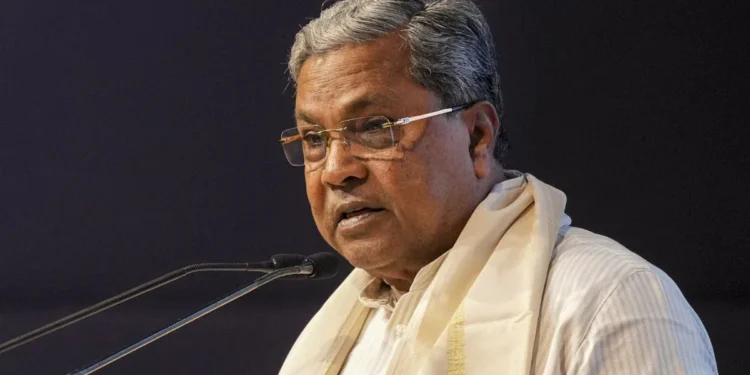Lagatar24 Desk
Chennai: The Dravida Munnetra Kazhagam (DMK), the ruling party in Tamil Nadu, has voiced its support for Karnataka Chief Minister Siddaramaiah’s proposal to convene a conclave of chief ministers to address the “unfair” distribution of taxes by the Union government. Siddaramaiah, in letters to various state leaders, including those in Tamil Nadu, Kerala, Andhra Pradesh, and others, raised concerns about the unequal devolution of taxes and fiscal federalism.
Siddaramaiah argued that states with higher per capita gross state domestic product (GSDP) are being penalized for their economic success by receiving disproportionately lower tax allocations. He emphasized the need for a collective discussion on this imbalance, urging non-BJP ruled states to unite on the issue.
DMK spokesperson SAS Hafeezullah echoed these concerns, noting that Tamil Nadu receives only 29 paise for every rupee of tax paid to the Centre. He criticized the Union government for bypassing the Goods and Services Tax (GST) system and collecting additional cesses without sharing them with the states, calling it a betrayal of the principle of fiscal federalism.
Hafeezullah further dismissed BJP’s claims that states like Tamil Nadu are receiving more tax allocations than they did under the UPA government, stating that comparing the two periods is misleading. He explained that the central budget under the NDA has significantly increased, yet states have lost their power to levy taxes directly due to the GST regime.
While welcoming Siddaramaiah’s call for a meeting in principle, Hafeezullah reinforced the DMK’s long-standing position on the unfair distribution of taxes to non-BJP ruled states. He added that the DMK, as part of the opposition INDIA alliance alongside the Congress, remains committed to challenging the BJP-led central government on such issues.
When asked whether Tamil Nadu Chief Minister MK Stalin should have attended the Niti Aayog meeting in July to raise these concerns, Hafeezullah defended Stalin’s decision to boycott the meeting. He stated that the boycott was a symbolic protest against the BJP, aiming to expose the party’s failures in upholding fiscal federalism.







